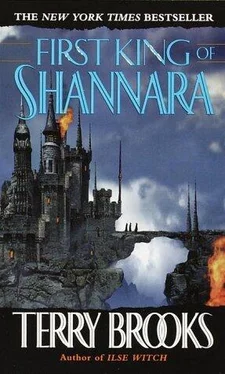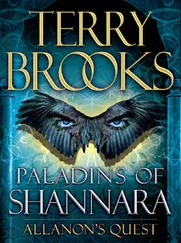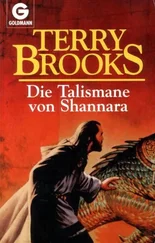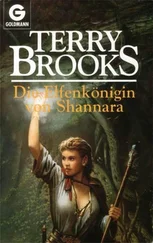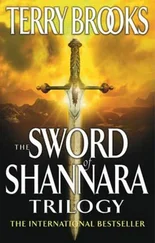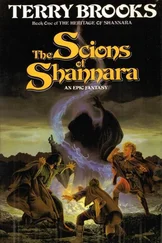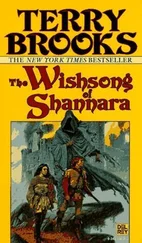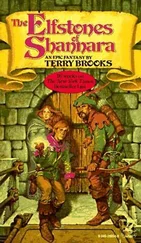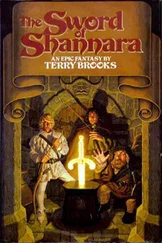Risca watched the creatures about it bow and scrape, conscious that while they could not see him, their Lord and Master could easily see them.
Now, with night descending and the entire army down out of the Northland and poised to march south to invade the Anar and conquer the Dwarves, Risca sat back wearily within his rocky crevice and let the shadows envelop him. Bremen had been right, of course—right about everything. Brona had survived the First War of the Races and stayed hidden all these years merely to gain strength so that he might strike once again. Now he was returned, this time as the Warlock Lord, and the Trolls and Gnomes belonged to him, subjugated and made servants in his cause. If the Druids were destroyed as Bremen had foreseen they would be—and Risca now believed it so—there was no one left to intervene on behalf of the free Races, no one left to wield the magic. One by one, they would fall—Dwarves, Elves, and Men. One by one, the Four Lands would be subjugated. It would happen quickly. No one yet believed it was possible, and by the time anyone did, it would be too late. Risca had seen now for himself the size of the Warlock Lord’s army. A juggernaut, unstoppable, monstrous.
Only by uniting could the free Races hope to prevail. But it would take time for them to decide to do this if left to their own devices. Politics would slow any decision making. Self-interest would generate an ill-advised caution. The free Races would debate and consider and be made slaves before they realized what had happened to them.
Bremen had foreseen it all, and now it was left to the handful who had believed him to find a way to prevent the inevitable from happening.
Risca reached into his pack, pulled out a piece of day-old bread he had bought at the edge of the border settlements, and began to chew absently on it. He had left Bremen and the others of the little company three days earlier at the mouth of the Hadeshorn. He had come east out of Callahorn to carry word to the Dwarves of the Warlock Lord’s approach, to warn them of the danger, and to persuade them that they must make a stand against the Northland army. But by the time he had reached the western edge of the Rabb, he had decided that his task would be made considerably easier if he could report that he had seen the approaching army with his own eyes. Then he could offer an estimate of its size and strength and thereby be more persuasive in his appeal. So he had turned north and used a second day to reach the Jannisson. There, on this third day, he had crouched in hiding in the foothills of the Dragon’s Teeth, and watched the army of the Warlock Lord come down out of the Streleheim; it had grown larger and larger until it seemed there would be no end to it. He had counted units and commands, animals and wagons, tribal pennants and standards of battle until he had its measure. It might as well have been the whole Troll nation come to call. It was the largest army he had ever seen. The Dwarves could never stand alone against it. They could slow it, delay it perhaps, but they could not stop it. Even if fee Elves came to stand with them, they would still be badly outnumbered. And they had no magic of the son wielded by Brona and the Skull Bearers and the netherworld creatures. They had no talismans. They had only Bremen, Tay Trefenwyd, and himself, the last of the Druids.
Risca shook his head, chewing and swallowing. The odds were too great. He needed to find a way to even them up.
He finished his bread and drank deeply from the aleskin he carried strapped across his shoulder. Then he rose and moved back to the precipice, where he could look down on the encamped army.
Fires had been lit by now, the descent of night’s darkness nearly complete, and the plains were bright with clusters of flame and the air thick with smoke. The army sprawled for almost a mile, bustling with activity, alive with sound and movement. Food was being prepared and bedding unrolled. Repairs were being undertaken and plans laid. Risca stared down from his perch, disheartened and angry. If strength of will and rage alone could have stopped this madness, his would have been sufficient. He caught a glimpse of a pair of Skull Bearers as they circled the inky skies beyond the aura of the firelight, searching for spies, and he hunched down into the concealing rocks, becoming one with the mountains, another colorless piece of the rough terrain. His eyes wandered the length and breadth of the campsite, but kept returning to the black silken litter in which the Warlock Lord reposed. It had been lowered to the ground now, set deep within the army’s midst, surrounded by Trolls and other creatures less human, a small island of silence within the teeming mass of activity. No fires were lit close to it. No creatures approached from the light. Blackness pooled about it like a lake, leaving it solitary and marked as inviolate.
Risca’s face hardened. The trouble begins and ends with the monster who occupies that tent, he was thinking. The Warlock Lord is the head of the beast that threatens us all. Cut off the head, and the beast dies.
Kill the Warlock Lord, and the danger ends.
Kill the Warlock Lord...
It was a wild, reckless, impulsive thought, and he did not allow himself to pursue it. He shoved it aside and forced himself to consider his responsibilities. Bremen was depending on him. He must bring word of this army to the Dwarves so that they could prepare for the invasion of their homeland. He must persuade the Dwarves to engage an army many times its size in a battle they could not hope to win. He must convince Raybur and the Elders of the Dwarf Council that a means would be found to destroy the Warlock Lord and that the Dwarves must buy with their lives the time that was needed to accomplish this. It was a tall order and would require a great sacrifice. It would be up to him to lead them, the warrior Druid who could stand against any creature the Warlock Lord might employ.
For Risca had been born to battle. It was all he knew. He grew to manhood in the Ravenshorn, the son of parents who had lived their entire lives in the Eastland wilderness. His father was a scout and his mother a trapper. There had been eight brothers and sisters on his father’s side and seven on his mother’s. Most of them lived within a few miles of one another still, and Risca had been raised by all at one time or another. Over the years of his boyhood, he saw as much of his aunts and uncles and cousins as he did his parents. There was a sharing of responsibility for raising the young in his family. The Dwarves of this part of the world were constantly at war with the Gnome tribes, and everyone was always at risk.
But Risca was equal to the challenge. He was taught to fight and hunt at an early age, and he discovered that he was good at it—better than good, in fact. He could sense things the others could not. He could spy out what was hidden from them. He was quick and agile and strong beyond his years. He understood the art of survival. He stayed alive when others did not.
At twelve, he was attacked by a Koden and killed the beast. He was thirteen when one of a company of twenty that was ambushed by Gnomes. He alone escaped. When his mother was killed setting lines, he was only fifteen, but he tracked down those responsible and dispatched them single-handedly. When his father died in a hunting accident, he carried his body deep into the heart of Gnome country and buried it there so that his spirit could continue the fight against their enemies. Half of his brothers and sisters were dead by then, lost to battle or sickness. He lived in a violent, unforgiving world, and his life was hard and uncertain. But Risca survived, and it was whispered when they thought he could not hear, for he was superstitious where fate was concerned, that the blade had not been forged that could kill him.
Читать дальше
